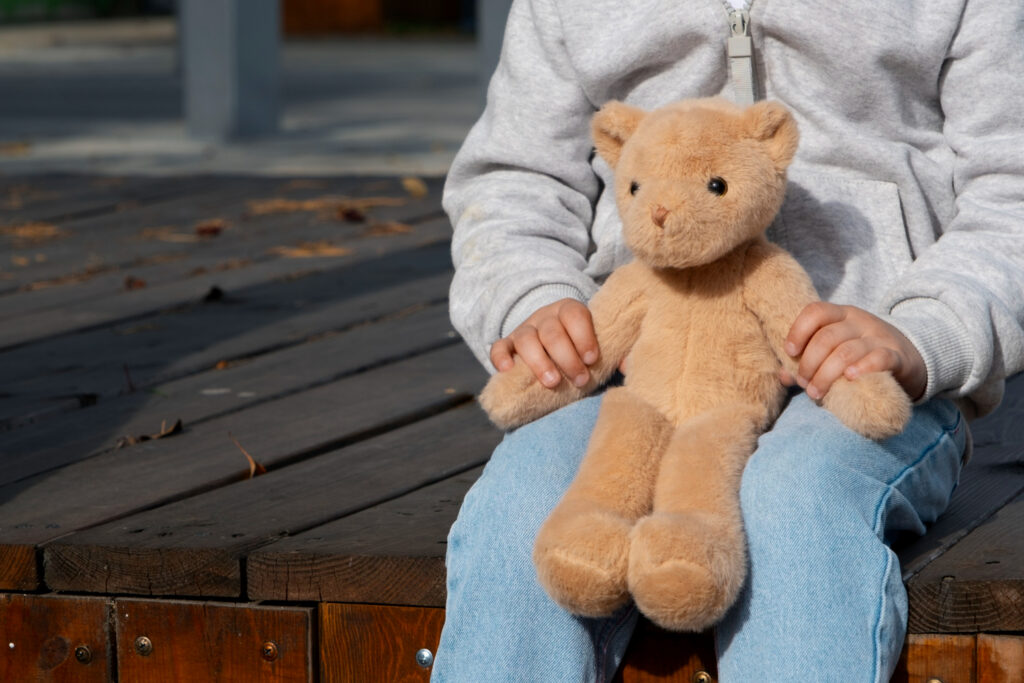
Childhood trauma comes in many forms and leaves a lasting imprint on the mind. It takes quite a toll on adults who have experienced it, shaping the way they perceive themselves and the world around them—often in harmful ways.
For some, trauma can lead to dissociative disorders—complex mental health conditions that cause disruptions in memory, identity, and perception of reality. Studies show that an alarming 90% of individuals with dissociative disorders have experienced childhood abuse or neglect.
If you struggle with dissociation, learning about the connection between your condition and early trauma can help you heal the disrupted bond between your mind and body. Alvarado Parkway Institute offers compassionate, trauma-informed care to help you regain a sense of stability and self-awareness.
What Is Childhood Trauma?
Childhood trauma occurs when a child experiences overwhelming stress, fear, or pain that exceeds their ability to cope. It can stem from a variety of events, including:
- Physical abuse: Enduring violence or injury at the hands of a caregiver
- Emotional abuse: Regular verbal attacks, rejection, or humiliation
- Sexual abuse: Any form of unwanted sexual touch or exposure
- Neglect: Lack of basic needs such as food, shelter, or emotional support
- Witnessing violence: Exposure to domestic violence or other traumatic events like war
The effects of childhood trauma do not simply fade with time; they become ingrained in the brain and body. When childhood trauma goes unaddressed, it can significantly influence your mental health, relationships, and ability to thrive well into adulthood.
What Are Dissociative Disorders?
Dissociative disorders are mental health conditions that cause individuals to disconnect from their thoughts, memories, or sense of self as a defense mechanism. Common types include:
- Dissociative identity disorder (DID): Previously known as multiple personality disorder, where a person has two or more distinct identities
- Dissociative amnesia: Noteworthy memory gaps related to one’s past, often linked to childhood trauma
- Depersonalization-derealization disorder: Feelings of detachment from oneself or the world, eliciting a dreamlike state
For adults, these symptoms may disrupt daily life, important relationships, and work. They can also lead to substance abuse issues. Unfortunately, because of the media, dissociative disorders are often misunderstood, preventing many people from seeking the help they need.
How Does Childhood Trauma Lead to Dissociative Disorders?
When faced with unbearable trauma, the mind develops defense mechanisms to survive. Dissociation allows a child to psychologically “escape” when physically escaping is not possible. Research shows that children who endure repeated abuse or neglect are more likely to develop dissociative disorders later in life.
This survival strategy can become deeply ingrained in kids, making it difficult for them to feel present and connected to reality even when they are adults. Over time, dissociation shields individuals from emotional pain but also makes it harder to develop a strong and stable sense of self.
Why Does the Brain “Shut Down” During Trauma?
During traumatic events, the brain activates the fight-flight-freeze response. When fighting or fleeing are not options, freezing—or dissociation—can be the only way to endure difficult scenarios. “Freezing” looks like:
- Completely detaching from emotions to avoid pain
- Blocking out traumatic experiences from your memory
- Feeling like events are happening to someone else
While this response can be helpful and protective in the moment, it becomes problematic when dissociation persists long after the trauma has passed. Instead of using healthy coping strategies, such as seeking support or processing emotions, survivors of trauma may continue to rely on dissociation in their adult lives, making it difficult to fully engage in everything they do.
How Trauma Affects Adulthood
Unfortunately, many children never receive the help they need to recover from trauma. Unresolved childhood trauma shapes how adults navigate relationships, emotions, and self-identity. Common struggles include:
- Difficulties with trust and intimacy, such as fear of abandonment or betrayal
- Intense mood swings or difficulty regulating emotions
- Self-esteem issues like deep-seated feelings of worthlessness
- Chronically feeling disconnected from reality or oneself
Because the brain tends to suppress traumatic experiences as a way to cope, many adults with dissociative disorders do not remember their childhood trauma. This phenomenon makes it difficult to connect their symptoms with past experiences, highlighting the importance of early intervention and professional support.
What’s the Best Way to Treat Dissociative Disorders?
Healing from dissociative disorders requires trauma-informed treatment that addresses both the underlying trauma and dissociative symptoms. Effective treatment options include:
- Trauma-informed therapy: Methods like cognitive behavioral therapy (CBT) or dialectical behavioral therapy (DBT) help individuals process painful memories and develop healthier coping mechanisms.
- Eye movement desensitization and reprocessing (EMDR): This specialized type of therapy is designed to help the brain reprocess traumatic memories in a less distressing way.
- Medication: While there is no specific medication for dissociative disorders, antidepressants or mood stabilizers may help manage co-occurring symptoms of depression and anxiety.
- Frequent self-care: Engaging in mindfulness, grounding exercises, and self-care activities can improve emotional regulation and presence.
At Alvarado Parkway Institute, we provide comprehensive treatment for dissociative disorders, ensuring that each person receives individualized care in a safe and supportive environment.
Get Help for Dissociative Disorders in San Diego
The connection between childhood trauma and dissociative disorders is deeply complex, but it is never too late to heal. If dissociation is interfering with your life, seeking professional support can help you regain a sense of presence, identity, and joy. Our team at Alvarado Parkway Institute specializes in trauma-informed mental health care, helping individuals in the San Diego area regain stability. Contact us today to learn more about our programs and get the support you deserve.
